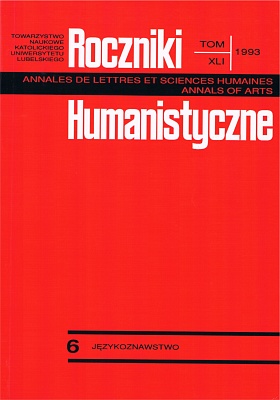Untranslatability as a Problem of Linguistics
Abstract
Particular ethnic languages are systems which are incongruous with one another. Thus a completely faithful translation from one language into another, i.e. word-to-word, literal translation, is impossible. What is more, it is often inadvisable because it leads on a higher, more essential level just to unfaithfulness. The ideal which is worth reaching in a translatory work is faithfulness of a translation with the original text on the principle of functional equivalence. The text of a translation takes on such a form that it functions wholly and in its parts in the target language in the same way as the original text functioned both wholly and in its parts in the source language. The best example which shows it is the translation of various kinds of phraseological expressions and proverbs which the paper quotes, making use of an extensive exemplification in this respect. The whole paper falls into two parts. The first one discusses the limits of translatability within the range of a vocabulary, taking into consideration the following points: 1. The relation between the categorization of reality by means of a language vs translation, 2. Meaningful units in a language vs translation, 3. Hackneyed similes and metaphors vs translation, 4. Meaning and denoting, 5. The spread of meanings vs translation, 6. Synthetic and analytic languages vs translation. The second part discusses briefly the problem of the length of sentences and word order in the context of translation.
Copyright (c) 1993 Roczniki Humanistyczne

This work is licensed under a Creative Commons Attribution-NonCommercial-NoDerivatives 4.0 International License.





